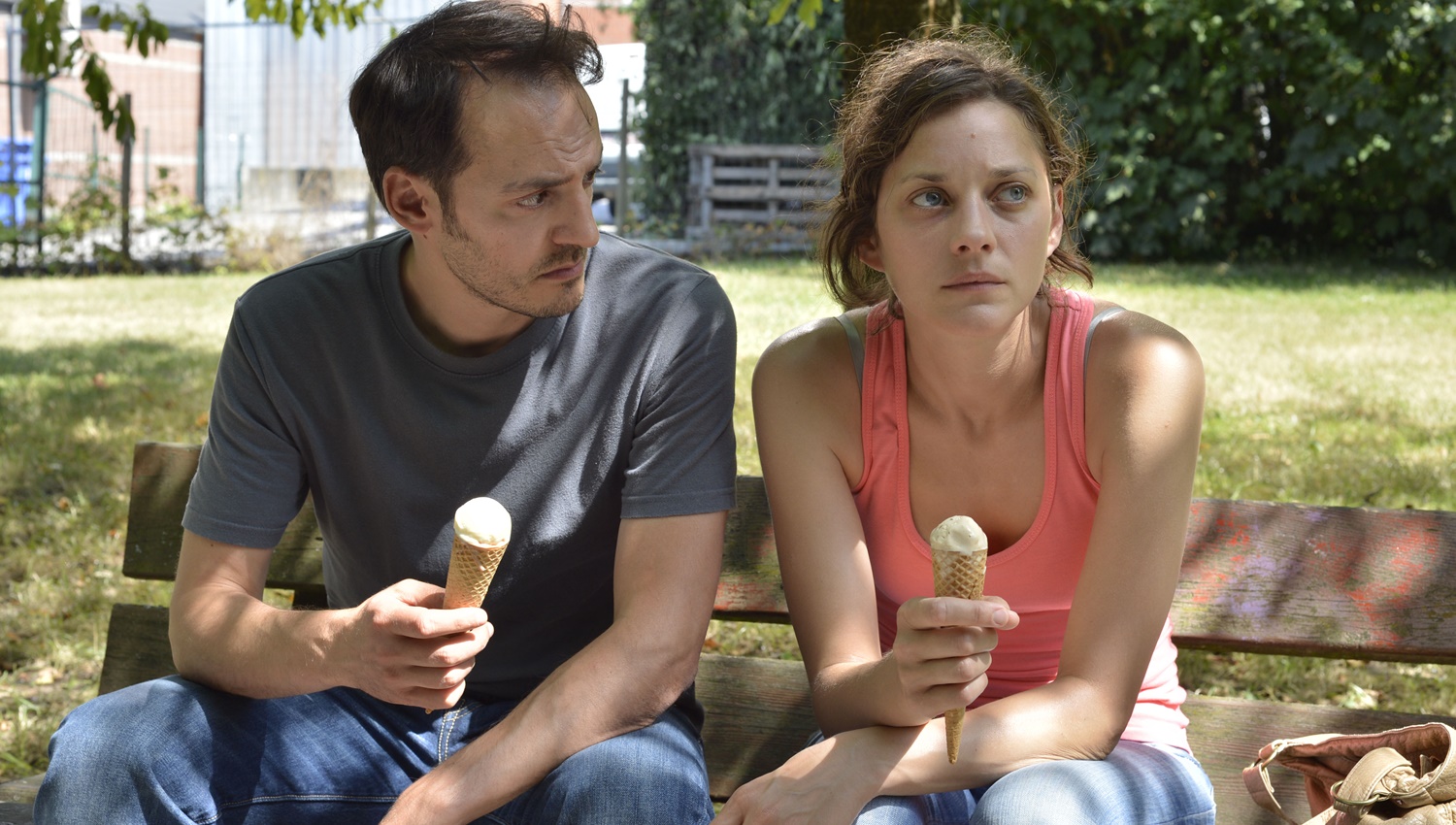
Two Days, One Night
Dustin Chase
The official Belgium entry for the Academy Awards is a barebones effort from film making brothers Jean Pierre and Luc Dardenne. Casting Oscar winner Marion Cotillard (Inception, La Vie en Rose) in the lead obviously brings awareness to the film and Oscar attention to the best actress race. Cotillard is beloved by Hollywood for her fierce performances and approachable demeanor, but I don’t see this performance in the conversation this year. That doesn’t mean it is a film to ignore; on the contrary, it’s a smart and penetrating look at society and virtues.
Following medical leave, Sandra (Cotillard) is poised to return to her salaried job that she and her husband Manu (Fabrizio Rongione) desperately need to support their family. The owner of the small company has said the employees must choose between their end-of-the-year bonus ($1,000 euro) or bringing Sandra back into her old position. Encouraged by her husband to visit each worker over the weekend, a deeply depressed and self-pitying Sandra desperately knocks on doors, drives around presenting the situation to the workers, forcing them to look her in the face and explain why they will not vote for her to retain her job.
With no score and no fancy filmmaking, it’s Cotillard and the message which hold your attention.
On the one hand, this is an ingenious look at so many different sides of unselfishness, helping out a neighbor, seeing the world through another’s eyes. The script does an excellent job in staying away from stereotypes when showing which character makes which choice. The script doesn’t make Sandra very likeable; her self-pity is deplorable and not entirely understandable from the audience’s point of view. On the other hand, the script pushes the idea that this is the only opportunity Sandra has. It asks a normal person to wonder why she wouldn’t just walk away and spend all this energy on finding a different job.
We see a frail Sandra knock on doors one by one, preparing for the worst. Some argue with her; some show signs of hatred towards her; while others, ashamed about their decision cannot even face her. Others back her completely; they reinforce her hope and stamina to keep asking. Cotillard does an excellent job at reinforcing Sandra’s desperation—according to the terms of the script. It’s only when thoughts of suicide enter the character’s mind that we wonder if she is actually capable of returning to her old position. More importantly, the film focuses on individuals’ decisions, briefly setting each one up with a certain role in society, and basing choices on either what’s morally right or selfishly looking at their own needs. With no score and no fancy filmmaking, it’s Cotillard and the message which hold your attention, and the film does a decent job in continually asking the viewer the same questions the characters are forced to answer.
Final Thought
A self-reflective piece of work that examines morals and virtues in modern society.
